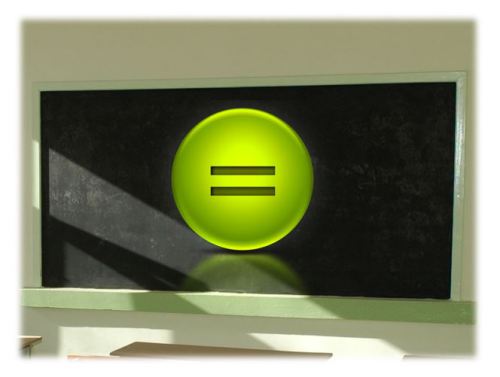Excellence Through Equity: 37 Ideas At The Corner of PBL and Edtech: ASCD16, Part Two


Welcome to the second post in a series that allows me to share with you my journey to the ASCD 2016 Conference in Atlanta. I hope your enjoyed my tweets throughout the conference, and even my pre-conference post, that brought you the latest in educational theory with a technology twist. For those that did not to ASCD, I have some great ideas and resources. If you did attend, I have some reminders and next steps of action for after the conference. First, to ensure you do not miss a valuable post or other resources covering PBL, Digital Curriculum, Web 2.0, STEM, 21st century learning, and technology integration, please sign up for 21centuryedtech by email or RSS. As always, I invite you to follow me on twitter (@mjgormans). Please give this post a retweet and pass it on. Have a great week – Michael Gorman (21centuryedtech)
Quick Notes – Opportunities you may want to be aware of.
Saturday, April 30 at 12 noon EDT – Join me for my webinar at Classroom 2.0 entitled: STEM, PBL, and Technology Integration… STEMtastic Ideas for Everyone. Please feel free to join me. I promise you a goldmine of resources. (More Information)
Friday, May 6 at 11:00 AM EDT – The Alliance for Excellent Education and Consortium for School Networking will conduct a webinar which aligns nicely to this blog post: District Strategies for Achieving Digital Equity (More Information)
Anytime -Please take a moment to check out my Booking Information (More Information)
Part Two: Excellence Through Equity… 37 Ideas At The Corner of PBL and Edtech: ASCD16
It seems that the past century of education has wrestled with the idea of equity in education. While this important issue may not be solved in an hour keynote, the awareness and energy from this informative session could go a long way. Attendees at ASCD16 had the opportunity to reflect on this issue as they listened and were engaged with two well versed experts.
Tools and ideas to transform education. Sign up below.
Pedro Nogurera is the Distinguished Professor of Education at the Graduate School of Education and Informational Studies at UCLA. His research focuses on the ways in which schools are influenced by social and economic conditions and demographic trends in local, regional, and global contexts. He is also a regular educational commentator on CNN, MSNBC, NPR, and other national news outlets. He was joined by award winning and educational leader Alan Blankstein. Alan served for 25 years as president of the HOPE Foundation and is author of bestselling the book, “Failure is not an Option” Alan himself is a former “high risk youth” and began his career as a music educator.
It is not entirely possible for this post to capture all the meaning and reflection provided by these two amazing educators. What I do hope to provide is some important take away(s) for those that attended to assist with further reflection and action, and for those not at the conference, to provide a glimpse of a topic that demands the attention of all educators. Please note that these are not direct quotes, but are instead important points I heard from both speakers. It is my belief that educators at any school will benefit by reading, posting, sharing, and most of all… taking action. Please enjoy these powerful points to ponder as we all work toward real equity that has the capability to promote success and authentic learning for all in education.
- Successful schools should not be stigmatizing students because of the difficult challenges. Instead they must be working with the challenges and turn them into a positive for their student population. This really is a new paradigm.
- We have to ask the question as to whether a problem is a crisis, or an opportunity. Is it a wall or a bridge? In order to make a difference and bring about equity to all students we must run to the problem, not away from it.
- It is important to know our students before one tries to teach them. This relationship building comes first, before any teaching strategies or curriculum standards.
- The skills of an educational institution’s staff must meet the needs of the students that are a part of that same institution.
- It is important that we address not just the science of teaching, but also the important art of teaching. This recognition will allow educators to really meet all students’ needs.
- Educators should not accept slop. They must treat every assignment as a first draft, because the learning is in the revision. Real teaching is not in the grading, it is in the feedback. Our kids are capable of so much!
- Teaching and learning is a process. It is not about a test. In order to lose weight, we do not look for the best scale possible. Instead, we provide the opportunity for lots of weigh ins.
- When kids are in control they are learning more than content. They are learning connections and important life skills
- Schools that allow students to be successful do not discipline kids by denying them an opportunity for learning.
- Equity means knowing where the kids are. The students’ needs are then addressed and they are moved forward from that point.
- Kids that are provided a vision and know they are heading somewhere act very different than kids that cannot see amazing possibilities and are heading nowhere. We must assist them in creating their own vision. What are their gifts?
- Educators must stop focusing on achievement. Instead focus on getting kids excited and achievement will happen
As I left the session I applied that same technology and PBL filter that I was determined to use throughout the conference. I couldn’t help but remain faithful to my beliefs that technology has the amazing capability to amplify the positive educational opportunities that educators provide. On the other-hand this technology must be more than a device. A technology plan can provide equity in learning if planned correctly. This plan must include an emphasis on technology that:
- Puts students at the center of their learning, not the device.
- Focuses on teachers developing powerful relationships with their students first, and then allowing the device to facilitate it even more.
- Employs technology to differentiate learning (Note that I did not state… instruction)
- Allows students to have voice and choice as to how they learn and how they demonstrate their learning.
- Promotes equity in access to technology, not just in a school, but across the district, state, and nation.
- Facilitates equal access to the internet 24 hours a day for students…. not just during the school hours.
- Injects meaningful PD that infuses technology into the learning experience for all teachers.
- Recognizes that proper pedagogy comes first, and that technology must align with the desired method.
- Allows and encourages avenues for authentic learning based on significant standards and life skills.
- Provides a conduit to connect students, parents, mentors, and educators into a learning community
As far as that PBL filter, I am certain that as you read the Gold Standards of PBL authored by the BUCK institute (BIE)… you will see the connection. Please take a look at some of the connections I see below.
- Allows opportunities for all students to explore their gifts and abilities.
- Creates real world connections providing audience, mentors, and a real purpose providing a real world student-centered experience
- Emphasizes both the significant content and important life skills needed for future success.
- Builds on a positive and caring culture that embraces the human joy found in learning.
- Provides students a vision and capability to plan for their future through their inquiry and exploration.
A first step might be to look at both our technology and instructional implementation plans with the filter provided in this post. If we do, I am certain there will be a next step. Imagine what we might see when we take a moment to look back in the soon to be future!
Learn More:
- BIE Gold Standards (Blog Post)
- Now is the time for project-based learning (PDK Article)
- Pedro Noguera: Are we failing our students? (Video TED Talent Search)
- Perdro Noguera ASCD (Bio and Books)
- An Introduction to Alan Blankstein and The HOPE Foundation (Video Hope Foundation)
- Alan Blankstein ASCD (Bio and Books)
- COSN: Digital Equity Agenda (Toolkit and Resources)
- How Digital Equity Can Help Close the Homework Gap (THE Journal Article)
- Why we must address digital equity right now (eSchool News Article)
- 7 things every educator should know about digital equity (ISTE Connects Article)
cross-posted at 21centuryedtech.wordpress.com
Michael Gorman oversees one-to-one laptop programs and digital professional development for Southwest Allen County Schools near Fort Wayne, Indiana. He is a consultant for Discovery Education, ISTE, My Big Campus, and November Learning and is on the National Faculty for The Buck Institute for Education. His awards include district Teacher of the Year, Indiana STEM Educator of the Year and Microsoft’s 365 Global Education Hero. Read more at 21centuryedtech.wordpress.com.
